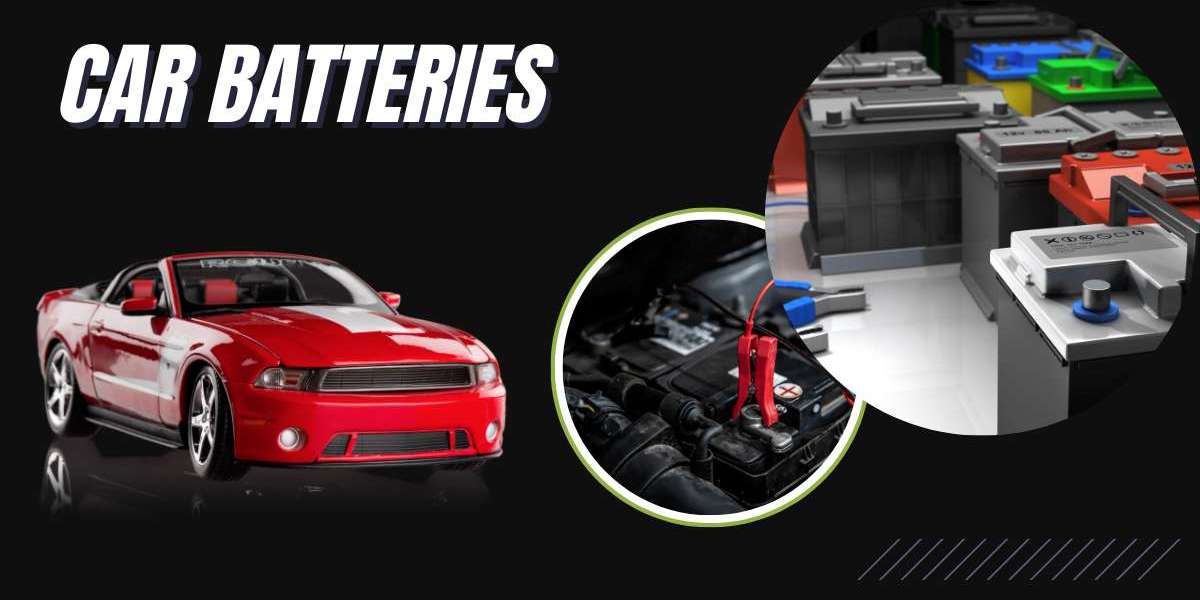Car batteries are the unsung heroes of every vehicle. Without them, your car wouldn't start, lights wouldn't function, and most importantly, your engine wouldn't have the spark needed to get going. Whether you drive a small sedan or a heavy-duty truck, your battery ensures all electrical systems are powered.
Unlike many components in your vehicle, car batteries wear out relatively quickly and require periodic replacements. Understanding how they work, how long they last, and how to maintain them is essential to avoid unexpected breakdowns.
How Car Batteries Work
At its core, a car battery stores electrical energy and converts it into power when you start your car. The most common type of car battery is the lead-acid battery. It contains lead and lead dioxide plates submerged in an electrolyte solution. When you turn the key, a chemical reaction occurs, producing an electrical current that powers the engine and other electrical systems.
The battery doesn't just start the car; it powers everything from the headlights to the dashboard indicators. It also plays a critical role in maintaining the vehicle's electrical systems when the engine is off.
Common Types of Car Batteries
Several types of car batteries are available, each suited for different vehicles and driving needs:
- Lead-Acid Batteries: The most common type. They're affordable but require maintenance and have a shorter lifespan.
- AGM (Absorbent Glass Mat): These are sealed, require no maintenance, and are designed for vehicles with start-stop systems.
- Enhanced Flooded Batteries (EFB): A step above traditional lead-acid, offering better durability for modern cars.
- Lithium-Ion Batteries: Lightweight and more energy-efficient, commonly found in electric and hybrid vehicles.
Choosing the Right Car Battery
Selecting the correct car battery isn't just about picking the cheapest option. Several factors must be considered:
- Battery Size: Choosing a battery that fits your car's battery tray is essential.
- Cold Cranking Amps (CCA): This rating indicates how well the battery performs in cold weather.
- Reserve Capacity (RC): The amount of time the battery can run if the car's alternator fails.
- Maintenance: Some batteries require regular checks, while others are maintenance-free.
Considering these factors ensures that you pick the most reliable and efficient car battery for your vehicle.
Signs Your Car Battery Is Dying
No one wants to be stranded with a dead battery. Luckily, car batteries usually give off warning signs before they fail:
- Slow engine crank
- Dim headlights or dashboard lights
- A clicking sound when turning the key
- Electrical issues such as malfunctioning windows or radio
- Battery warning light on the dashboard
If you notice any of these symptoms, it's time to test or replace your car battery.
Car Battery Lifespan
On average, a typical car battery lasts between 3 to 5 years. However, this lifespan can vary depending on several factors, including:
- Weather: Batteries tend to last longer in cooler climates.
- Driving habits: Frequent short trips can reduce battery life.
- Maintenance: Regular inspections and cleanings help prolong its life.
Extending the Life of Your Car Battery
While you can't prevent your battery from eventually wearing out, you can extend its life with a few simple steps:
- Regularly check the battery's voltage.
- Clean the terminals to prevent corrosion.
- Avoid leaving the car's electricals on when the engine is off.
- Ensure the battery is adequately secured to avoid vibrations.
These steps can help maximize the lifespan of your car battery and ensure reliable performance.
How Temperature Affects Car Batteries
Extreme temperatures can have a significant impact on car batteries. Cold weather thickens engine oil, making it harder for the battery to start the engine. In contrast, hot weather causes the battery's fluid to evaporate, accelerating corrosion and shortening the battery's lifespan.
To protect your battery, park in shaded areas during hot days and keep your vehicle in a garage during freezing temperatures.
Jumpstarting a Dead Car Battery
If your car battery dies unexpectedly, you can jumpstart it using jumper cables and a second vehicle. Here's how:
- Position the cars so their batteries are close together.
- Connect the red jumper cable to the positive terminal of the dead battery.
- Attach the other red cable to the positive terminal of the good battery.
- Connect the black cable to the negative terminal of the good battery.
- Attach the remaining black cable to an unpainted metal surface on the dead vehicle.
Once the car starts, allow it to run for a few minutes to recharge the battery.
Best Practices for Car Battery Maintenance
Maintaining your car battery is crucial for ensuring long-term reliability. Here are some tips:
- Inspect your battery regularly for corrosion.
- Tighten loose connections and ensure the battery is securely mounted.
- Test your battery's voltage every few months.
Staying on top of these simple maintenance tasks can prevent unexpected breakdowns and extend the life of your battery.
How to Properly Dispose of Old Car Batteries
Old car batteries contain toxic chemicals and should never be thrown in the trash. Instead, take them to a recycling centre or auto parts store. Many stores offer discounts when you return an old battery, encouraging responsible disposal.
Car Battery Replacement Cost
The cost of replacing a car battery varies depending on the type and brand. You can expect to pay between $50 and $200 on average. High-performance batteries may cost more but often offer extended warranties and better reliability.
How to Test Your Car Battery
You can test your car battery using a multimeter or a specialized battery tester. A fully charged battery should read around 12.6 volts. If it reads lower than 12 volts, it's a sign that your battery may be weak or failing.
Charging Your Car Battery
If your car battery is low but not completely dead, you can recharge it using a charger. These devices plug into a standard wall outlet and charge the battery slowly over several hours. Be sure to follow the manufacturer's instructions to avoid overcharging, which can damage the battery.
Common Myths About Car Batteries
There are many misconceptions surrounding car batteries. One common myth is that idling your car for a few minutes will charge the battery. In reality, this does little to recharge the battery and wastes fuel. Another myth is that all car batteries are the same—different vehicles have different power needs, so always choose a battery that's compatible with your vehicle.
FAQs on Car Batteries
How often should I replace my car battery?
Most car batteries must be replaced every 3 to 5 years, but regular testing can help determine when it's time for a new one.
What causes a car battery to die quickly?
Frequent short trips, extreme temperatures, and lack of maintenance are common factors that shorten a battery's life.
Can a car battery be overcharged?
Overcharging a car battery can cause it to overheat, leading to damage and reduced lifespan.
Is it okay to use a car battery from a different vehicle?
Always use a car battery designed for your vehicle's make and model to ensure optimal performance.
Can I recycle my old car battery?
Old car batteries should be taken to a recycling centre or auto parts store for safe disposal.
How do I know if my car battery is failing?
Signs of a failing car battery include slow engine starts, dim headlights, and electrical issues.
Conclusion
A car battery is a crucial component that powers every part of your vehicle, from the engine to the lights. Understanding how to maintain, replace, and care for your battery ensures your car continues running smoothly. Regular maintenance, proper disposal, and choosing the right type for your vehicle are vital to getting the most out of your car battery.








